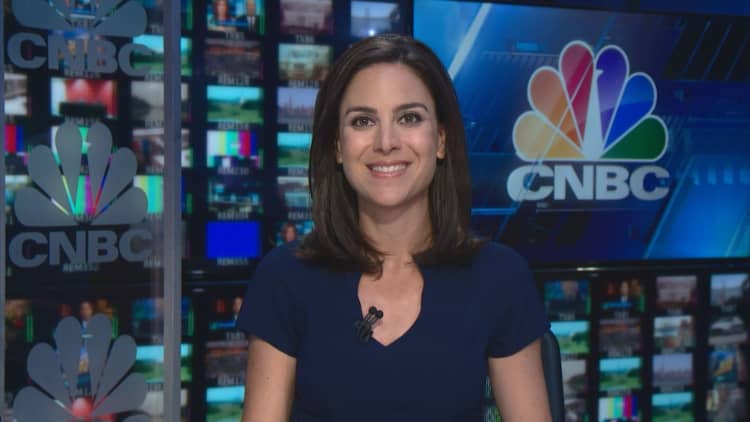Saudi Arabia's representative to OPEC on Thursday said the kingdom's oil exports will be little changed this month, a blow to President Donald Trump, who is depending on his allies in Riyadh to put more barrels on the market to tame fuel prices.
July exports from OPEC's top producer will be roughly in line with last month's total, the Dow Jones reported, citing Saudi OPEC governor Adeeb Al Aama. Meanwhile, Saudi crude oil exports are poised to drop by 100,000 bpd in August compared with July.
Al Aama said Saudi Arabia will not substantially oversupply the market, Dow Jones reported. Saudi exports were about 7.2 million bpd in June, an industry source told Reuters.
Oil prices extended gains following the news, with U.S. benchmark West Texas Intermediate crude last up 92 cents, or 1.3 percent, at $69.68 a barrel.
Crude futures fell 7-8 percent from recent highs on the last trading day of June through Wednesday, as the market's concerns about supply shortages eased.
"This sell-off from the highs probably spooked them a little bit, and they're scratching their heads trying to figure out what to do next. They're trying to be a little bit more measured," Kilduff said.
"I don't think they wanted to overshoot to the downside, and that's what this commentary speaks to."
Helima Croft, global head of commodity strategy at RBC Capital Markets, also said the Saudis could be trying to put a floor under international oil prices at $70. Global benchmark Brent crude fell to a three-month low just above $71 a barrel this week.
Trump has called on OPEC to pump more oil as the average cost of gasoline at retail stations remains stuck near $3 a gallon. One of the major factors that pushed oil prices to 3-½-year highs is Trump's decision to restore sanctions on Iran, the world's fifth largest crude producer.
The 15-nation OPEC cartel agreed last month with Russia and several other oil-producing nations to partly reverse their 1½-year-old deal to limit output.

Two dozen nations began capping production in January 2017 to drain a global crude glut that sparked an historic oil price crash. However, their output fell more than expected due to cratering production in Venezuela and involuntary supply losses elsewhere. The crude price rally accelerated earlier this year as Trump reversed Obama-era sanctions relief for Iran, fueling fears of oil shortages.
The Saudi governor's remarks could also be aimed at maintaining unity among oil producers, according to Croft.
"It could be an attempt to calm concerns within OPEC that Saudi is going to overshoot on the increase in order to please President Trump and fatally undermine [the] Vienna Alliance," she said, referring to OPEC's partnership with other oil producers.
The Trump administration reportedly lobbied Saudi Arabia to increase output in order to offset the impact of its Iran policy on oil prices. Trump has also taken to Twitter in recent months to blame OPEC for the rising cost of crude, ordering the cartel to rein in fuel prices.
Just days after OPEC agreed to hike output, the Trump administration revealed it is pushing oil buyers to cut imports from Iran to zero by Nov. 4, sending oil prices higher. Officials including Treasury Secretary Steve Mnuchin and Secretary of State Mike Pompeo have since said some importers could be allowed to more gradually reduce purchases from Iran.
Oil market analysts have questioned whether Saudi Arabia, Russia and a handful of producers with spare capacity can put enough barrels on the market to compensate for the loss of Iranian exports.
The Saudis managed to lift output by nearly 500,000 bpd in June. A Reuters survey indicated the Saudis pumped about 10.7 million bpd this month.
"We do know that Saudi domestic oil consumption in July and August rises due to the increased demand for power generation to satisfy air conditioning requirements, so while they're producing more, they're consuming more and the exports are suffering," said Andrew Lipow, president of Lipow Oil Associates.
"I think underlying all this, the market might be thinking that Saudi Arabia doesn't have as much spare capacity as they've been led on to believe."


